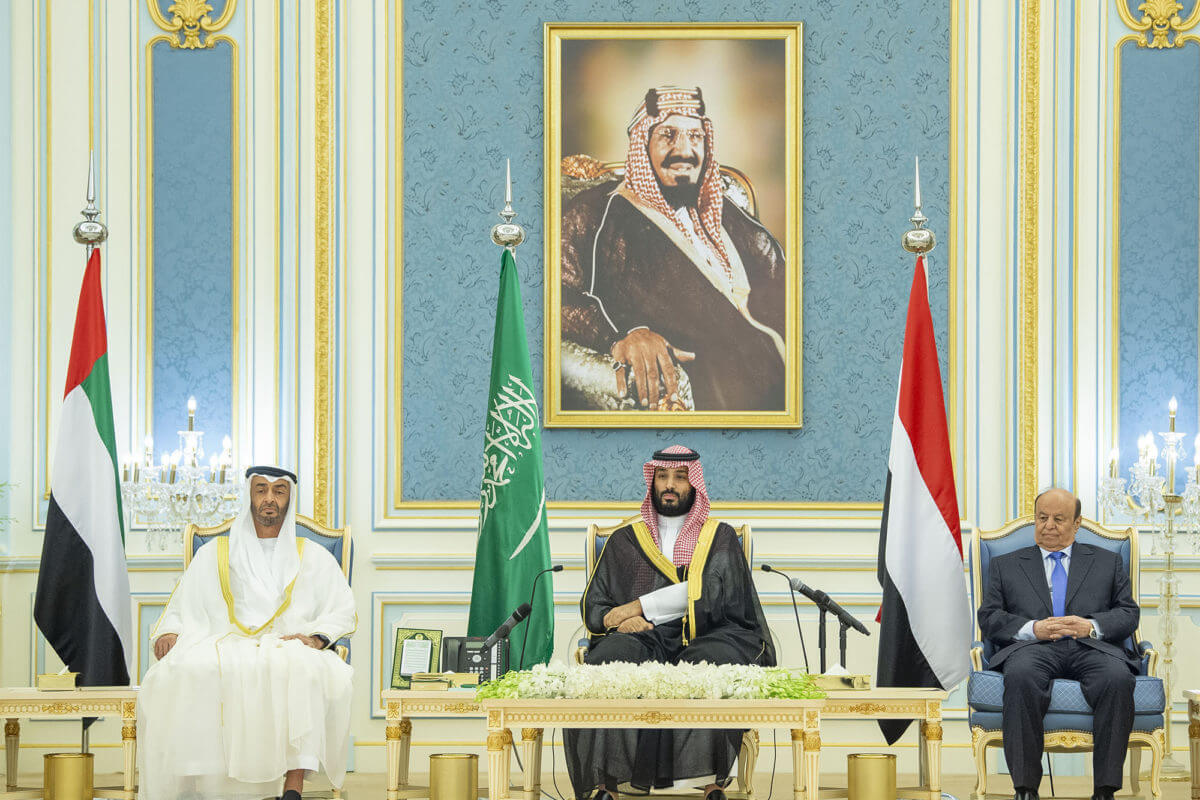On Saturday, Yemen’s President, Abdrabbuh Mansour Hadi, swore in a new government headed by Prime Minister Maeen Abdulmalik Saeed in the Saudi capital Riyadh. The 24-member cabinet was formed following a power-sharing deal brokered by Saudi Arabia last year.
The new government gives equal representation to Yemen’s northern and southern areas. Accordingly, the cabinet now includes five members from the separatist Southern Transitional Council (STC) in order to end a power struggle between Hadi loyalists and the secessionists. According to a Yemeni government source, all ministers took their oaths in Riyadh, except Local Administration Minister Hussein al-Aghbari, who insisted on taking the oath in the temporary capital Aden.
While addressing the new cabinet, President Hadi said, “We are in a new stage and depend on you to act as one team...You are coming from different blocs and geographical areas, but let your main concern be first and foremost the country and its citizens.”
The crisis in Yemen broke out at the onset of the Arab Spring in 2011, when a popular uprising ousted the country’s long-time authoritarian president, Ali Abdullah Saleh. Saleh was soon replaced by his deputy Hadi; however, due to his administration’s mismanagement, Yemen remains highly unstable.
This instability paved the way for Shiite Houthi rebels to take control over Yemen’s northern region, including the capital Sana’a. As a result, Hadi was forced to retreat into exile abroad. The conflict escalated dramatically in March 2015, when Saudi Arabia and eight other (mostly Sunni) Arab states—backed by the United States (US), the United Kingdom (UK), and France— began an airstrike campaign against the Houthi rebels, with the declared aim of restoring Hadi’s government.
However, after Sana’a fell under Houthi’s control, the Yemeni government declared the southern city of Aden as the country’s temporary capital, leading to a parallel crisis in the country’s south. This was because southerners, along with the STC, viewed Hadi’s party Islah as not only representing the Muslim Brotherhood in Yemen (whom they vehemently oppose) but also as working with jihadist groups such as Al-Qaeda. For this reason, even after recognising Hadi’s presidency, southerners continued to oppose the presence of Yemeni troops in the south.
As a result, in 2019, STC, backed by the United Arab Emirates (UAE), seized control of the southern port city of Aden, leaving the Saudi- and UN-backed government led by President Hadi in possession of little land or effective power. However, the issues between the Yemeni government and STC were resolved with the power-sharing agreement, also known as the Riyadh Agreement, in November 2019 under the sponsorship of the Saudi-led coalition, putting an end to military clashes between forces of the two parties. The appointment of a new government is the continuation of the same cooperation.
Yemen’s New Government Sworn in Following Saudi-Brokered Power-Sharing Deal
The new 24-member cabinet, headed by Prime Minister Maeen Abdul Malik, was sworn in during a ceremony held in Riyadh on Saturday.
December 29, 2020

SOURCE: MIDDLE EAST MONITOR
